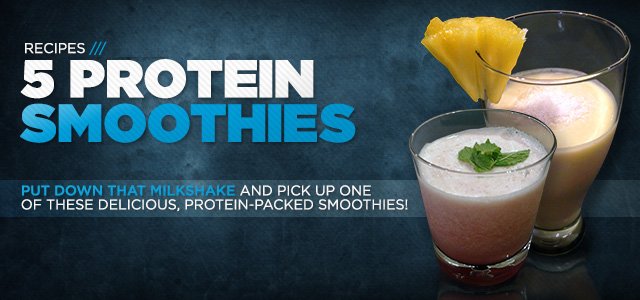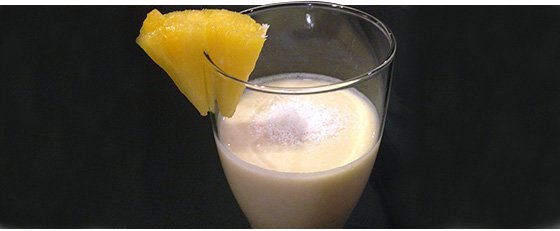The Fruits that Tested Best
|
The Blood Pressure Lie EXPOSED!
If you've been told you have high blood pressure, you're probably scared to death.
It is called "the silent killer." With a name like that, it has to scare you. And, if that's not scary enough, you were probably told to start taking a blood pressure drug immediately. But, that wasn't all, was it? I bet you had to go and see a cardiologist next. And, did the cardiologist tell you that if one drug didn't bring your pressure down, you might have to take a second drug at the same time? Often, there's even a third drug. I know how the system works. I've been fighting against it for you for almost 30 years. And, I know you don't want to be part of that group who's taking blood pressure medication for the rest of their lives. So I'll let you in on a little secret... |
How one small fruit effectively halted liver cancer
Recent evidence suggests not all fruits are created equal when it comes to halting the growth of cancer. Different fruits pack massively different combinations of phytonutrients. Wild bananas, for instance, contain anthocyanins. But not yellow bananas.
So, in a petri-dish study using liver cancer cells, researchers decided to test the individual power of various fruits. As a control, they dripped water on the cancer cells—and nothing happened. The growth of the cancer cells didn't slow down at all.
Next came a test for pineapples, then pears, then oranges. None made any appreciable difference in the cancer cell growth rate. But when the researchers tested high peach concentrations on the cancer cells, cancer cell proliferation dropped roughly 10 percent.
That surprised me, because I've never seen peaches mentioned as a particularly healthy fruit. In view of this study, I think it's likely they contain a powerful phytonutrient that scientists haven't identified yet.
That's alright by me. Peaches in season are my favorite fruit. Blueberries (not tested in this study) come in second for me. But purchasing fresh peaches is tricky because they have very heavy loads of pesticides when grown conventionally. An organic farmer once told me that it's almost impossible to grow them without some chemicals, so in farmer's markets you'll find a lot of "low-spray" peaches but probably few that can honestly claim to be "no-spray."
So, in a petri-dish study using liver cancer cells, researchers decided to test the individual power of various fruits. As a control, they dripped water on the cancer cells—and nothing happened. The growth of the cancer cells didn't slow down at all.
Next came a test for pineapples, then pears, then oranges. None made any appreciable difference in the cancer cell growth rate. But when the researchers tested high peach concentrations on the cancer cells, cancer cell proliferation dropped roughly 10 percent.
That surprised me, because I've never seen peaches mentioned as a particularly healthy fruit. In view of this study, I think it's likely they contain a powerful phytonutrient that scientists haven't identified yet.
That's alright by me. Peaches in season are my favorite fruit. Blueberries (not tested in this study) come in second for me. But purchasing fresh peaches is tricky because they have very heavy loads of pesticides when grown conventionally. An organic farmer once told me that it's almost impossible to grow them without some chemicals, so in farmer's markets you'll find a lot of "low-spray" peaches but probably few that can honestly claim to be "no-spray."
But peaches weren't the
most powerful anti-cancer fruit. . .
most powerful anti-cancer fruit. . .
Grapefruits and bananas each halted growth by about 40 percent. Apples, strawberries, and red grapes slowed cancer cell proliferation by 50 percent. Those figures are far higher than the score for peaches.
But keep reading. This gets better. . .
The two fruits really worth noticing were lemons and cranberries, with cranberries coming out on top. They both caused a dramatic drop in proliferation, and at tiny doses. For a fascinating video on the subject, click http://www.care2.com/
Does this mean that anybody suffering from liver cancer should start downing cranberries? It certainly wouldn't hurt, considering fruit treatments are generally quite safe. But we have to consider whether the same reaction would take place inside the human body. Studies in petri dishes are great. But they can't and don't tell the whole story. We need studies in live humans — not easy to do because it wouldn't be ethical to treat a cancer patient with nothing but bananas or lemons.
But keep reading. This gets better. . .
The two fruits really worth noticing were lemons and cranberries, with cranberries coming out on top. They both caused a dramatic drop in proliferation, and at tiny doses. For a fascinating video on the subject, click http://www.care2.com/
Does this mean that anybody suffering from liver cancer should start downing cranberries? It certainly wouldn't hurt, considering fruit treatments are generally quite safe. But we have to consider whether the same reaction would take place inside the human body. Studies in petri dishes are great. But they can't and don't tell the whole story. We need studies in live humans — not easy to do because it wouldn't be ethical to treat a cancer patient with nothing but bananas or lemons.
Fruits aren't the only edible treatment on the rise…
This isn't the only promising study on fruits halting cancer. In another study, researchers took people who already had pre-cancerous changes in their mouths—a precursor to oral cancer, which has a very high death rate.
Now, we know that in petri dish experiments, black raspberries can inhibit the growth of pre-malignant and malignant cells without affecting the growth of normal cells. But again, that's not the same as testing the effects on humans.
Here's where it gets interesting. Researchers took those folks with pre-cancerous growths in their mouths and asked them to rub a black raspberry gel on the growths daily for six weeks. Incredibly, most of the lesions improved. Some completely regressed.
The gel was chosen so test subjects wouldn't have to consume berries all day long, and because the gel stuck better to the gums where the lesions were. Because of the promising results, one group of researchers is working to create injectable berry implants.
One reason to hope they come through with the implants is that it's hard to get access to black raspberries on a regular basis. You've probably noticed the stores usually stock red raspberries. Now, red raspberries are also a known cancer-fighter, but since this oral cancer study was conducted on black raspberries, those are the ones you'd want to use to have the best shot at getting the same results.
Freeze-dried black raspberry powder is available, but then there's the risk of lost nutrition. Still, it's worth a try.
Let me point out here that it's not just fruit that might save the day from cancer. Spinach appears to be the best vegetable for fighting breast cancer … and to be honest, it's at or near the top among salad greens for fighting a lot of other cancers including brain tumors, kidney cancer, lung cancer, pancreatic cancer, prostate cancer, stomach cancer, and pediatric brain tumors.
But we're still a ways away from hearing doctors prescribe hefty doses of berries and vegetables to ward off cancer. Regardless ... I don't think it's far-fetched to believe that day might come, and maybe sooner than we think.
Now, we know that in petri dish experiments, black raspberries can inhibit the growth of pre-malignant and malignant cells without affecting the growth of normal cells. But again, that's not the same as testing the effects on humans.
Here's where it gets interesting. Researchers took those folks with pre-cancerous growths in their mouths and asked them to rub a black raspberry gel on the growths daily for six weeks. Incredibly, most of the lesions improved. Some completely regressed.
The gel was chosen so test subjects wouldn't have to consume berries all day long, and because the gel stuck better to the gums where the lesions were. Because of the promising results, one group of researchers is working to create injectable berry implants.
One reason to hope they come through with the implants is that it's hard to get access to black raspberries on a regular basis. You've probably noticed the stores usually stock red raspberries. Now, red raspberries are also a known cancer-fighter, but since this oral cancer study was conducted on black raspberries, those are the ones you'd want to use to have the best shot at getting the same results.
Freeze-dried black raspberry powder is available, but then there's the risk of lost nutrition. Still, it's worth a try.
Let me point out here that it's not just fruit that might save the day from cancer. Spinach appears to be the best vegetable for fighting breast cancer … and to be honest, it's at or near the top among salad greens for fighting a lot of other cancers including brain tumors, kidney cancer, lung cancer, pancreatic cancer, prostate cancer, stomach cancer, and pediatric brain tumors.
But we're still a ways away from hearing doctors prescribe hefty doses of berries and vegetables to ward off cancer. Regardless ... I don't think it's far-fetched to believe that day might come, and maybe sooner than we think.
Whole foods diet wins out again
The best you can do for now is to stick to a whole foods diet with lots of fresh greens and fruits. If you missed last week's article on juicing, look it up and consider this easy way of consuming large amounts of fresh, uncooked vegetables and fruit.
Because it's nearly impossible to know which specific cancers you're most at risk for, your best bet is to eat a wide variety of the good stuff from nature. That'll cover your bases until we know more about which fruit or vegetable is best for which cancer.
In the meantime, you may be wondering about the most palatable way to eat a cranberry. Cranberry juice from the store is not a great idea, because it's pasteurized, which destroys valuable nutrients. Instead, make your own cranberry juice. Blend a handful of frozen cranberries, water, and your natural sweetener of choice (I recommend agave or, better yet, xylitol). Then drink and enjoy—you'll get less than half the sugar of store-bought cranberry juice, and loads more phytonutrients.
And whatever you do, try hard to buy organic fruits and vegetables to avoid the chemicals.
Because it's nearly impossible to know which specific cancers you're most at risk for, your best bet is to eat a wide variety of the good stuff from nature. That'll cover your bases until we know more about which fruit or vegetable is best for which cancer.
In the meantime, you may be wondering about the most palatable way to eat a cranberry. Cranberry juice from the store is not a great idea, because it's pasteurized, which destroys valuable nutrients. Instead, make your own cranberry juice. Blend a handful of frozen cranberries, water, and your natural sweetener of choice (I recommend agave or, better yet, xylitol). Then drink and enjoy—you'll get less than half the sugar of store-bought cranberry juice, and loads more phytonutrients.
And whatever you do, try hard to buy organic fruits and vegetables to avoid the chemicals.










 SHARE
SHARE
